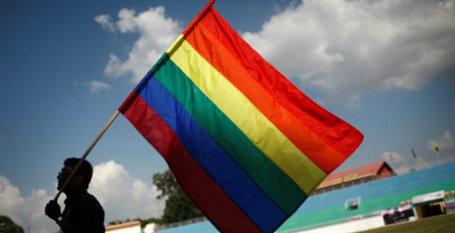A government official in Nepal says the country will now begin issuing passports to its trans* citizens by issuing them passports that will recognize them as the third sex besides the usual categorizing of people as either male or female.
"We have changed the passport regulations and will add a third category of gender for those people who do not want to be identified as male or female," Lok Bahadur Thapa, chief of the government’s passport department, recently told the Thomson Reuters Foundation.
Nepal will now be among the handful of countries such as Australia and New Zealand who allow citizens to choose from three genders for their passports.
LGBT rights activists in Nepal say such recognition on passports would help tackle widespread discrimination they face within the Hindu-majority Himalayan country.
"It is a very progressive move, and we welcome it," Pinky Gurung, chief of the leading gay rights group Blue Diamond Society told Thomson Reuters Foundation.
However, Gurung pointed out that more needs to be done to also amend legislation to include the third gender within broader laws such as those pertaining to inheritance.
Nepal laws so far identifies its citizens as either male or female despite a 2007 Supreme Court ruling ordering authorities to amend laws to include a third gender.
Rights activists maintain that changing laws may be easier than changing minds in a country where the traditional arranged marriage is still the norm, and where up to a decade ago LGBT people were routinely jailed for relations that authorities called “unnatural.
”Nepal remains largely a conservative country where people disapprove of gay people and highly stress straight relations and the law ministry is reportedly preparing to enact anti-gay laws that will punish same-sex relations with three years imprisonment and prohibit same-sex unions.
Nepal is a fledgling democracy which was ruled for centuries by a Hindu religious monarchy and hereditary prime ministers with absolute powers. In the 1990s that monarchy was reduced to a constitutional figurehead and later in 2008 completely abolished to become a republic.
In 2007, the Supreme Court ruled in favor of regarding same sex marriage but the state has not yet done the needful to even fully protect the LGBT community from discrimination. Many LGBT members think that might happen with the promulgation of a new constitution. However, the country’s constitution is still a work in progress and a long way from finished.

